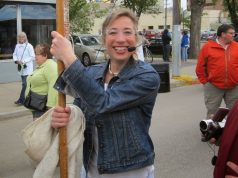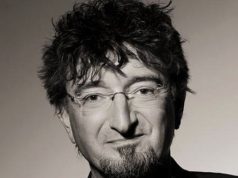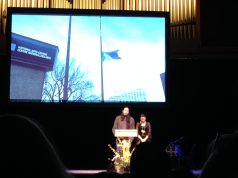National Theatre School Directors and guest editors of this volume of the SpiderWebShow Carly Chamberlain and Tanya Rintoul, reflect on last weekend’s conference while eating sushi at their desks and pretending they are in separate rooms.

So. Let’s talk about this thing we organized a couple weeks ago!

it was really only one week and two days ago

I have no idea what day it is right now.
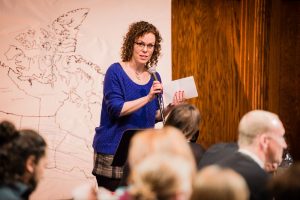
All I know is that it happened.
The long table portion of the day was suuuuper interesting: engaging, contentious, funny and frustrating, covering lots of big questions…. I had to go back today to remember what the initial question Sarah started us off with was. And now that I have, I’m interested to see what our responses would’ve been had we not been diligently live-tweeting!
So: If you could change anything about how you’re living your life today what would it be?

I would have exercised today.
But, seriously…
I would be more aware of the world. Of the things that indirectly affect me. I have avoided those things for a long time. Especially political things, because often the uncertainty of what the truths are really overwhelm me.
How about you?

I’m always thinking about changing my relationship to fear. It’s evolving…but slowly. I feel like I have to constantly practice the habit of running face first into the things (both creatively and personally) that freak me the fuck out. And every time I think I’m getting better at it, something new and scary presents itself.

I relate to that too. I think that’s a big part of engaging with change, and as artists we do that everyday (even when we don’t read the newspaper)
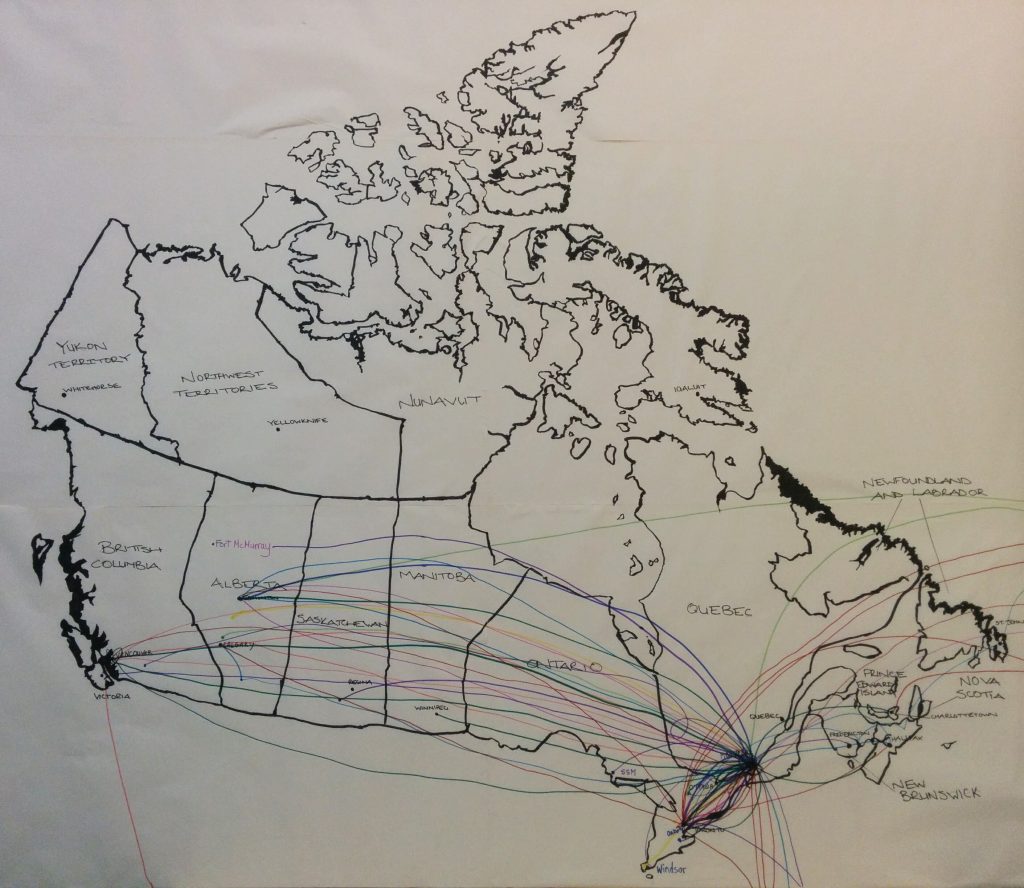

One of the very first things that was said during the morning that really stuck with me, was when Sarah (Garton Stanley) said, “We feel as citizens and respond as artists”. That seemed to be a recurring theme throughout the conference.

Absolutely. It is such a wonderful framework. One that I honestly hadn’t considered before, in those specific terms. I think identity outside of being an artist is something that I often struggle to name.

ooh yeah that’s a big challenge and question as (relatively) young artists. Which came first our identities as artists? or citizens? or women? etc…- I feel like coming back to school and taking a break from creating (while working a million joe jobs) has started to open up the conversation with myself about WHY I create, and for whom, and why this medium…

‘Why’ is such a big question. When it comes down to it there are so many reasons, and so many definitions of those reasons. For example the discussion at the long table about who our work is for. Who is it serving?
We talked a lot about community. And how it inspires and impacts what we are saying and doing with our work. This is often challenging for me, as I have never felt a part of a community outside of my artistic one.

Yeah I get that, and I think it’s a super common experience. We spend so much time in theatre schools, and with our collaborators, these super inspiring, but ultimately privileged environments, that I think we all so quickly look inward instead of outward.
But also — what is community?? Especially as a young Canadian??
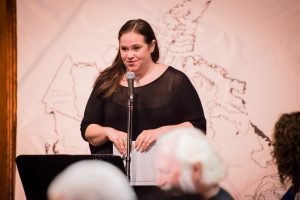

It is hard to look outside that bubble.

hmm. I guess I think of community as some group of people with shared values or backgrounds, something that unites them. but more and more I feel like there are wide gaps between my experience of the world and that of people seemingly similar to me, so how can the work possibly speak to that? But actually, maybe that’s the point — sort of what Annabel Soutar was getting at too – that finding a national narrative isn’t about patriotism or a single voice…but bringing diverse perspectives learning how to talk to each other again
so maybe the artistic work of our generation isn’t about communicating to a single community, but finding ways to connect with differing perspectives
both finding common ground and acknowledging the gaps too

I think acknowledging but also accepting the gaps is crucial. There is a power in having different perspectives in our artistic voices because there is a great tension between ideas that also tells a story. There doesn’t have to be terms of agreement, or a fight to prove that one’s voice is more important or more ‘right’ than another.
We don’t have to agree or even get along.
Like Annabel said “a new language that doesn’t force consensus.”
I wonder though how to begin to form a new language. It feels like a vicious cycle….wouldn’t we have to agree on not agreeing in order to move forward on new terms?
The overall experience of the table was that there were a lot of voices looking for change. But not half as many answers for how.
And I don’t know what that means for the future.

And just like our etiquette for The Long Table….”there is no conclusion”…..
But just because there’s no conclusion doesn’t mean we can’t take our ideas and discussions and put them into action. We don’t need to wait for consensus to change the form of dialogue, we can just do it.
Ok, problem solved. What’s next?






